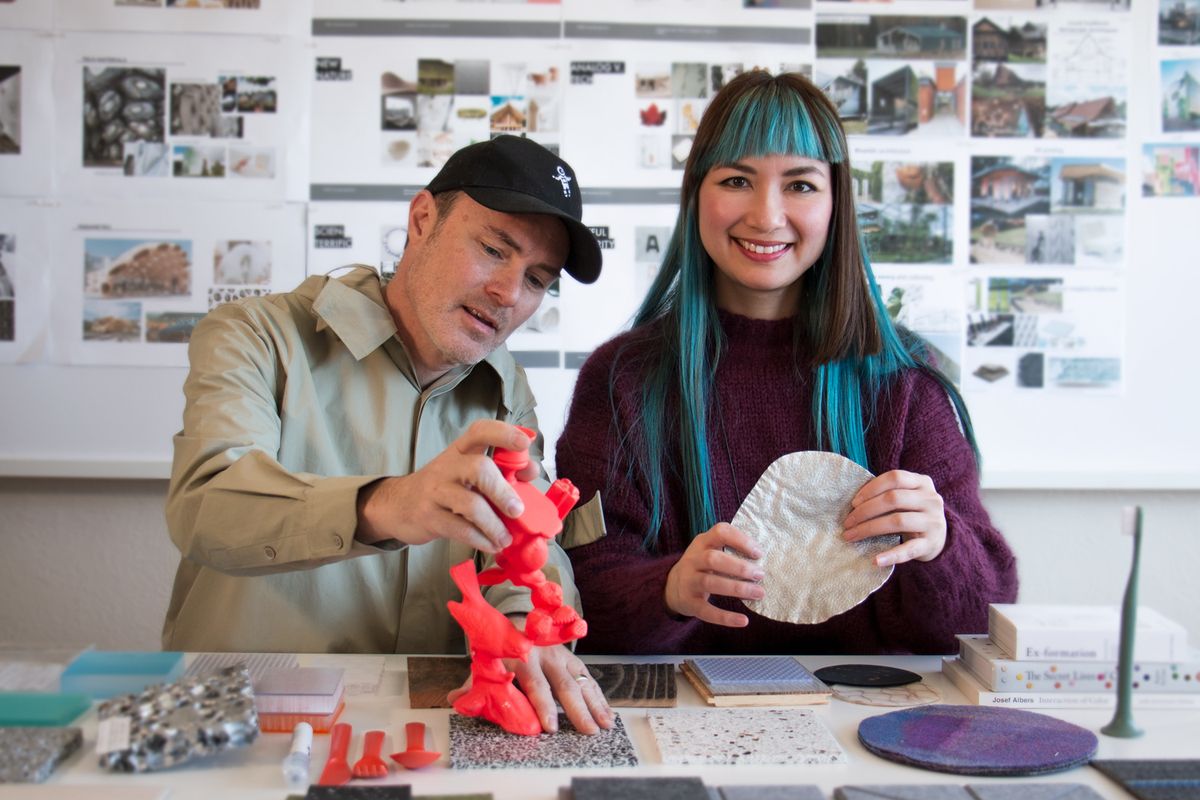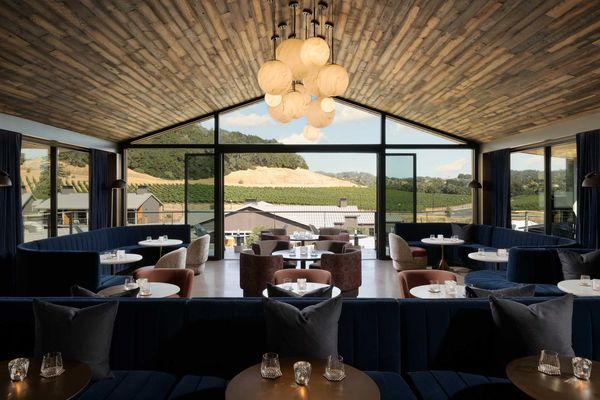Lots of San Franciscans talk about defying convention. Married designers and co-creative directors Phnam and Mardis Bagley are the real deal.
"We turn science fiction into reality," says Phnam of their team at Nonfiction, the couple's San Francisco–based industrial design studio that mashes mind-blowing creativity and visionary technology into crave-worthy bio-tech wearables and fashion accessories that blur the lines between cutting-edge design and old-school craft. Just wait till you see their latest project: wildly futuristic headphones.
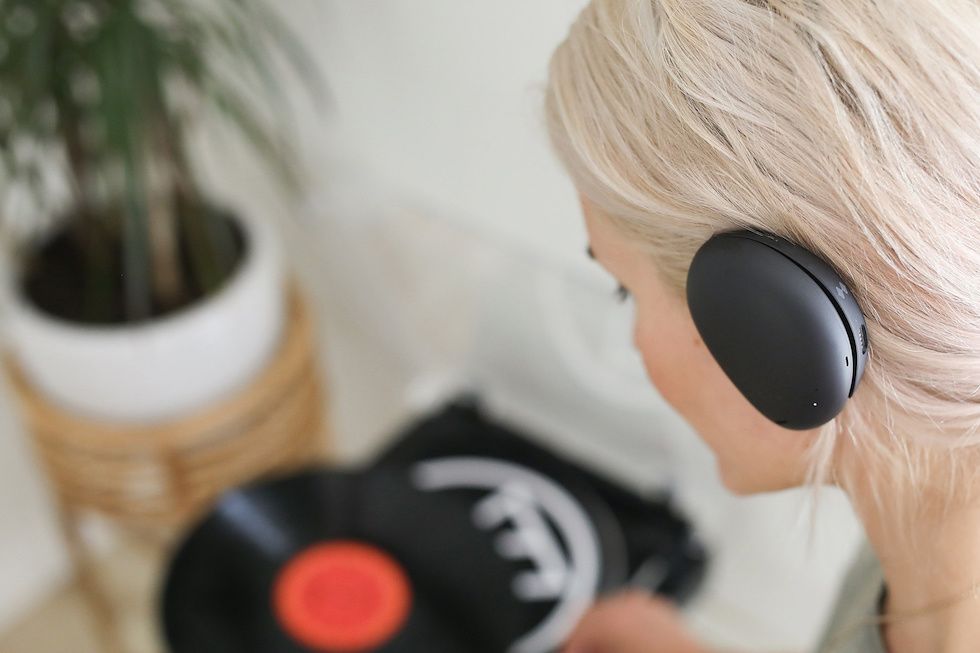
When Human Inc. challenged the Bagleys to help them invent a set of smarter, more comfortable wireless headphones, the Nonfiction team, given an early stage design that did not yet work, tinkered with more than 700 iterations of 3D prototypes. Over the course of seven months, Nonfiction worked to constantly refine the headphones so they could simultaneously house advanced hardware, support cutting-edge software, remain unobtrusive, and stay securely attached to the listener's head. Inspired by the human ear, the resulting Human Headphones have radical ergonomics and look cool on, but they go a step further than just transmitting tunes from your favorite bands—launched this past summer, these headphones can snap together to become a bluetooth speaker and, even more amazing, they have the ability to translate up to 11 languages.
"We're focused on building a better future for humans," says Phnam. "Our favorite projects challenge the status quo with designs that are as intuitive and beautiful as they are long-lasting."
Phnam, 38, grew up in the outskirts of Paris, obsessed with fashion and aerospace. She studied spacecraft architecture at the University of Houston, and afterward sought specialized training with Houston's engineering giants, NASA and Lockheed Martin, where she learned to build out exterior and interior architecture for crew transfer modules, habitats, and exploratory rovers. After four years working in the field of space, Phnam shifted gears into industrial design, prompted by a desire to mesh all her passions, the techie with the lifestyle (she is also behind the locally based accessories brand Eternal Luxe).
Mardis, 50, grew up in Illinois and was practically born with tools in his hand—by the time he was 13, he was welding go-karts, roofing houses, and rebuilding car engines. He delved into graphic and interactive design before rooting his passion in hands-on 3D making. The twosome met at the University of Houston, where Mardis was getting an industrial design degree.
"We fell into friendship right away," he says, "but our romance developed with the help of Hurricane Rita, which hit Houston a couple weeks after Hurricane Katrina. We evacuated together. Phnam had been in the U.S. for only three weeks and barely spoke English. The night before graduation, we were married. That was 13 years ago."
After working for the majors in San Francisco–based design firms—think IDEO, Lunar, and Ammunition—the duo had a baby: the now four-year-old Nonfiction based in Potrero Hill. "San Francisco has a culture like no other," says Mardis. "We love that we get to engage with so many people who are out to change the world."
(Courtesy of Nonfiction)
Designed by Nonfiction for Halo Neuroscience, the Halo Sport 2 headset excites the brain's neurons to boost motor skills and encourage faster learning and athletic performance, whether you want to learn to ski or bike faster. // $399, haloneuro.com
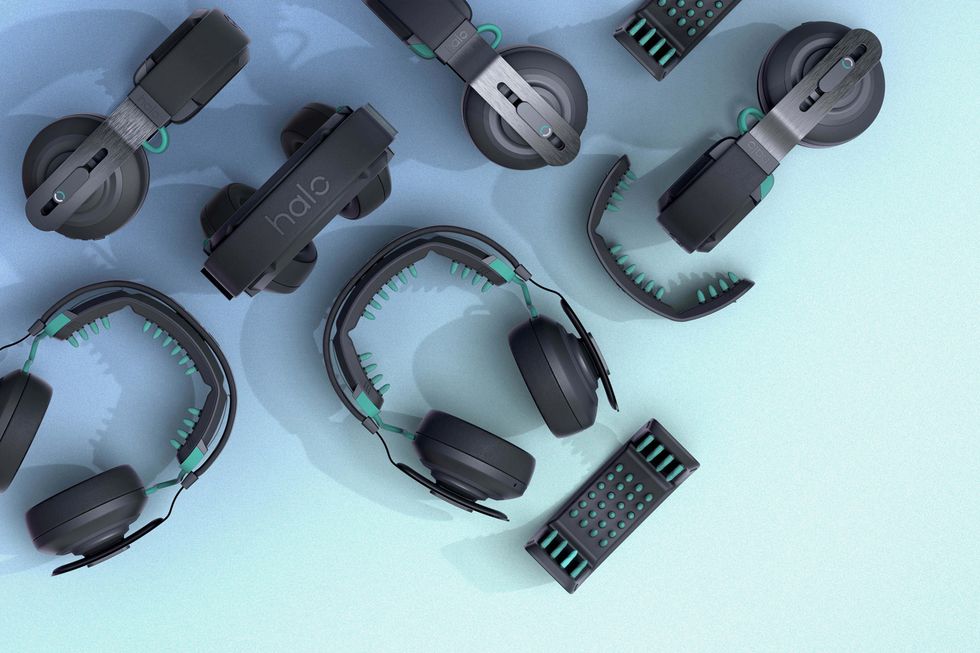
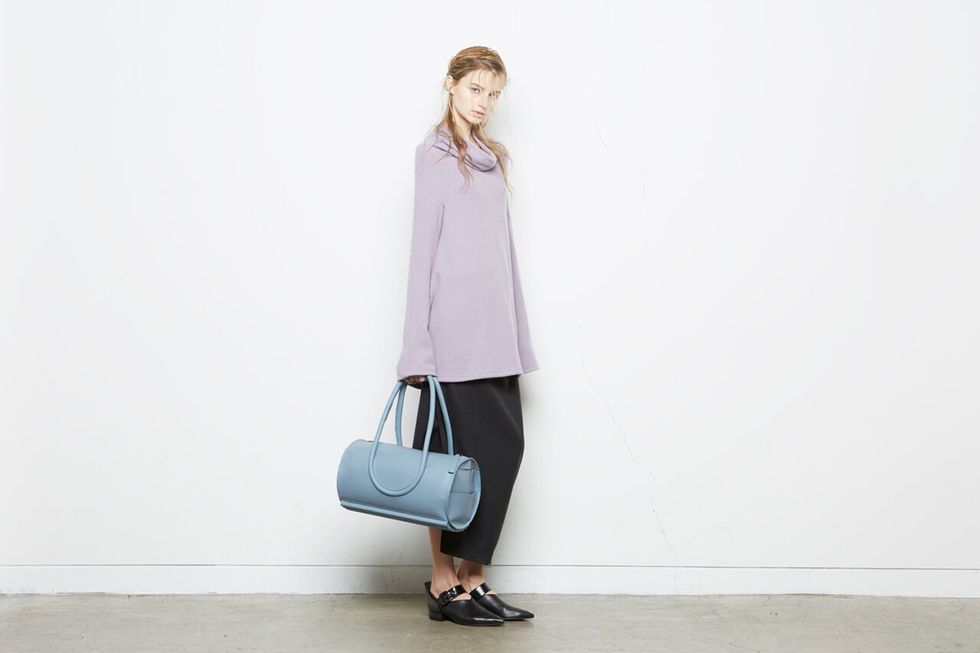
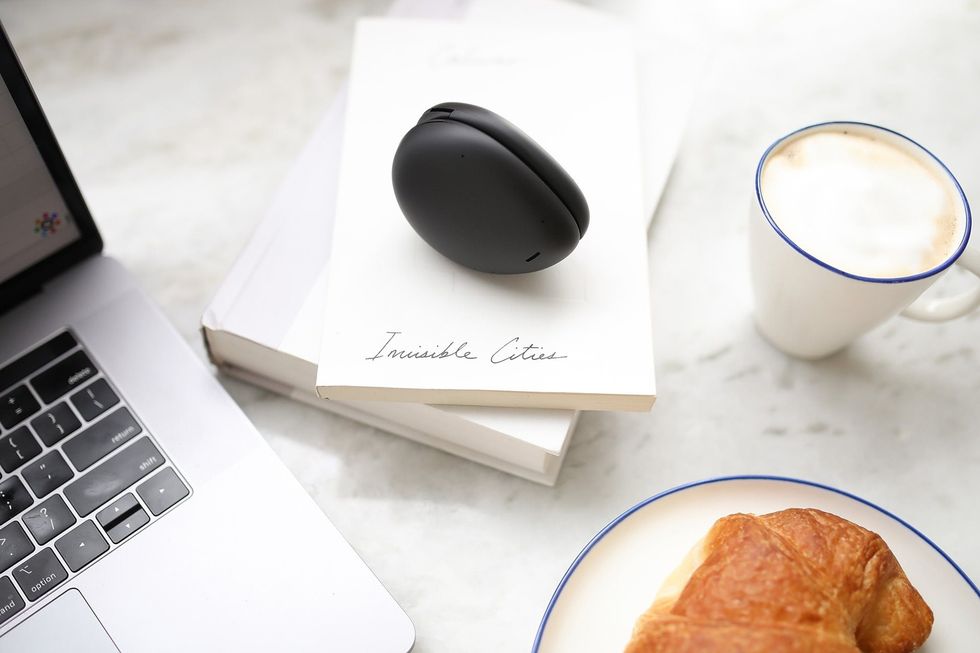
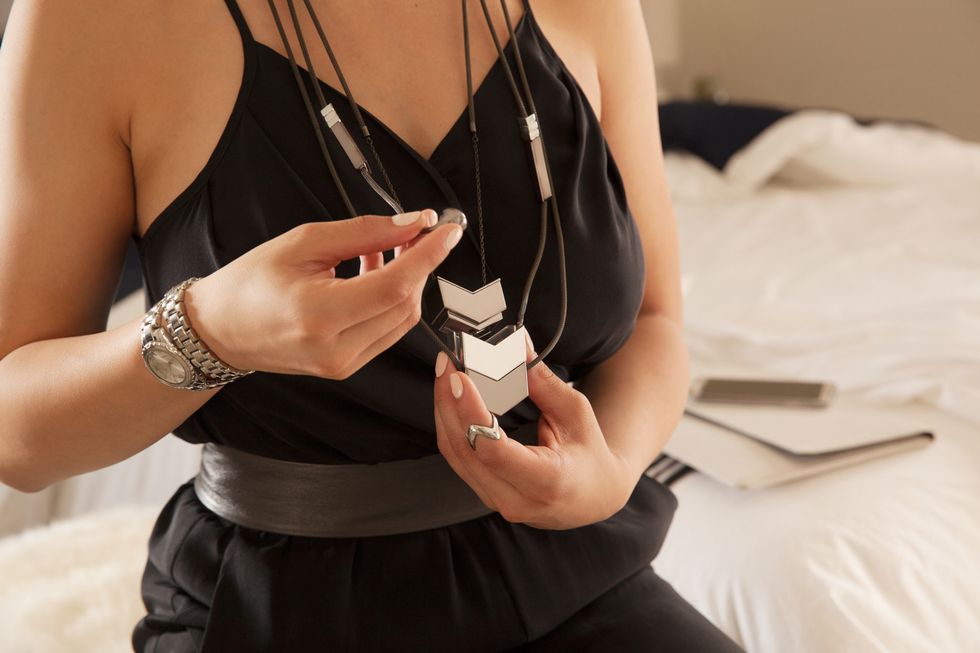
With their small-but-mighty creative team, the Bagleys have the agility to both dream up and reinvent designs that will feel essential to us in the future, and their clients include both start-ups and such well-known global firms as Halo Neuroscience.
Nonfiction can also count on its growing and impressive resume the design for the Halo Sport 2, a groundbreaking wearable that stimulates the brain to improve athletic performance. When worn during practice, the Halo headset primes neurological pathways in the wearer's noggin, sending the brain into a hyper-learning state to quickly ramp up new skills—be it weight training, running, cycling, or on the court. You may have heard that both the San Francisco Giants and Golden State Warriors are fans.
"When we come up with new ideas and forms, they must feel as natural and intuitive as possible. The result is that we design many firsts: the first on-ear headphones without a headband, the first smart rubber ducky that reacts to the world around it, the first FDA-approved wearable for tremors," says Mardis.
So what's next?
"We'd love to design the future of commercial and private transportation, the future of smart cities, revolutionize education systems, build the foundations of off-planet settlements, and push the limits of biohacking," Phnam says.
You know, the basics.
"We're a curious bunch of weirdos," Mardis laughs. "Our studio is totally built on fun. Everyone brings such unique perspectives and experiences, which allow all these interesting, unfiltered ideas to build off each other. It's like a hive of great minds—we play and push what's possible."



